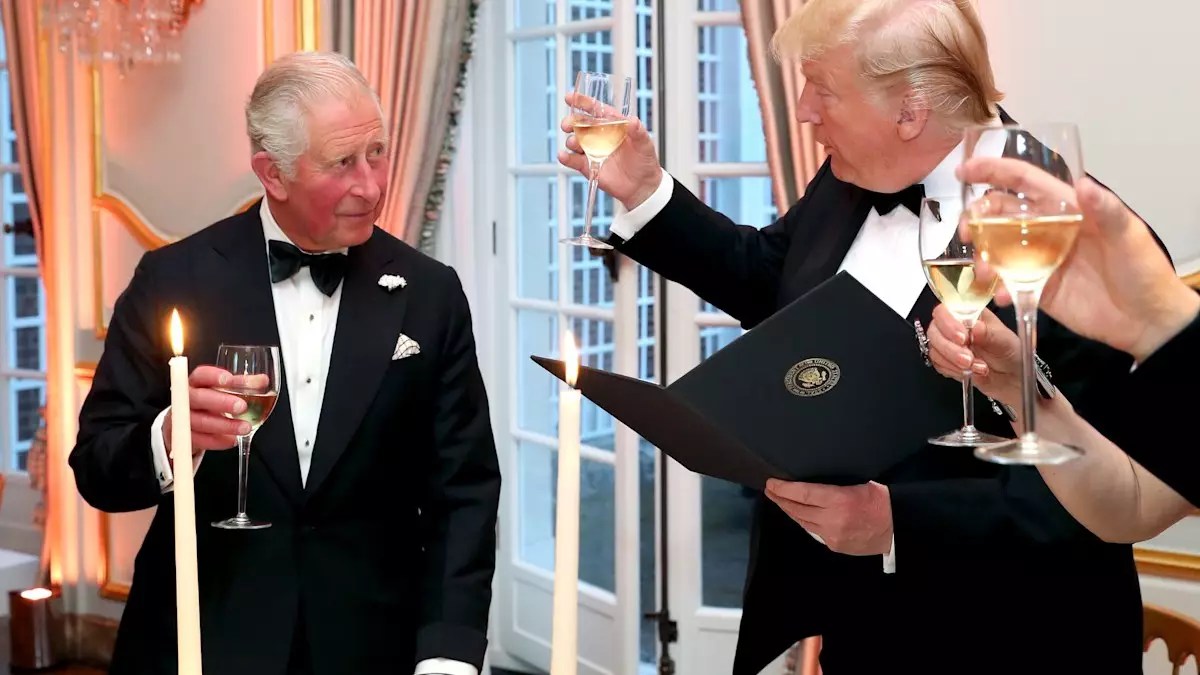The announcement of Donald Trump’s second state visit to the United Kingdom, set to take place at the iconic Buckingham Palace in September, breaks conventional expectations surrounding presidential state visits. The significance of this invite not merely lies in the location but in the very notion of what it means for diplomatic relations and international camaraderie. Typically, a second-term president does not receive such honors from foreign nations, and yet here we stand, on the verge of an event unprecedented in modern political history.
Trump himself characterized this visit as a “fest,” a celebration of the bond between the U.S. and the UK, asserting his affinity for King Charles III and his family. This informal use of the term hints at a close relationship that transcends traditional political dialogue; it allows a glimpse into the casual, yet sincere, rapport that the U.S. President claims to have nurtured with the British monarchy. The historic context cannot be overlooked: Trump had his first state visit in June 2019, which was well documented and painted against the backdrop of an evolving political environment.
Breaking Norms and Setting Precedents
The peculiar nature of Trump’s upcoming visit sparks discussions about the unfolding diplomatic norms in a rapidly changing political landscape. Traditionally, state visits serve as symbolic ceremonies to reinforce ties, but Trump’s scenario presents an unprecedented case. The invitation extended to him by British Prime Minister Sir Keir Starmer—an act seen as a calculated move—demonstrates a shift in diplomatic strategy, suggesting an eagerness to reaffirm alliances that could serve national interests as global tensions fluctuate.
Starmer’s assertion that “this has never happened before” speaks volumes about the stakes of such an event. The expectation is that this unprecedented invitation will not only reflect a personal gesture towards Trump but will also have implications on future Anglo-American relations. In a world where alliances are crucial, can this gesture be interpreted as a new chapter for bilateral cooperation, or does it merely shine a light on the blurred lines of political traditions?
More Than a Political Fanfare
For Trump, this second state visit is also an opportunity to project his influence and reaffirm his standing on the world stage. Trump’s keen admiration for the British royal family adds a personal touch that is often missing from official state interactions. The relationship with the Royals has historically been marked by ceremonial reverence and mutual respect, and Trump’s enthusiastic engagement indicates a desire to solidify these ties further.
Reflecting on his interactions with Prince William and the late Queen Elizabeth II, Trump illustrated a fondness that goes beyond mere formalities, recounting personal anecdotes about these encounters. This insight portrays him as a leader who values interpersonal relationships, even within the parameters of formal diplomatic relations. But one must ponder whether this reflects genuine affection or a strategic maneuver in an era marked by an increasing need for alliances in a fractured geopolitical landscape.
The Evolving Dynamics of Leadership
As Trump prepares for his upcoming state visit, one cannot overlook how the dynamics between leaders are evolving in contemporary politics. Leadership is less about rigid structures and more about relationships fostered through personal engagement. Trump’s visit to the UK is emblematic of this shift; his approach complements an increasingly globalized world where personal connections can facilitate political dialogue.
Critics may argue that this personal approach can lead to misplaced priorities, where the focus shifts from pressing global issues to individual personalities within the political framework. Nevertheless, the underlying message is clear: in a time when traditional diplomacy may be faltering, the renormalization of personal relationships could pave the way for new avenues of cooperation and understanding between nations.
As we await September’s rendezvous, the anticipation surrounding Trump’s visit underlines not just the ties between the UK and the US, but also a broader narrative of global relations, positioning personal diplomacy at the forefront of international affairs. The significance of this moment will likely resonate beyond the immediate interactions, potentially shaping the future of diplomacy for years to come.


Leave a Reply